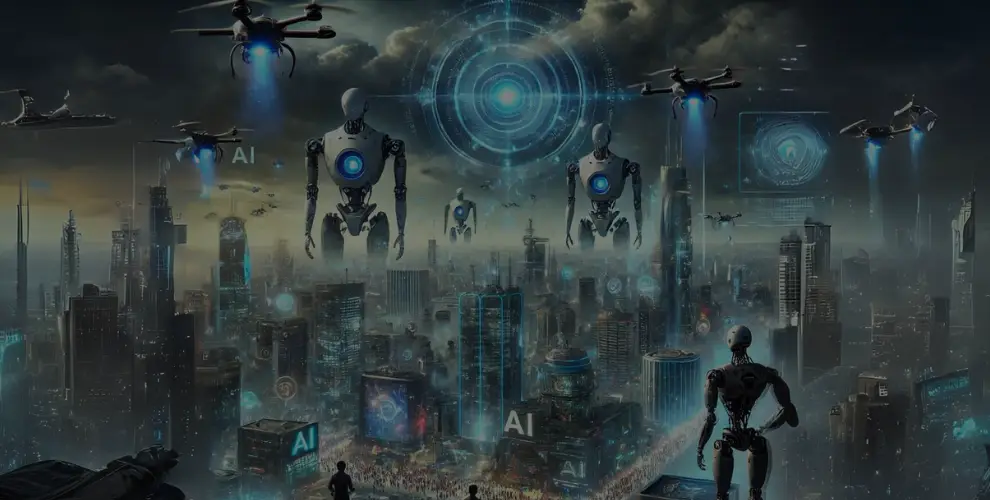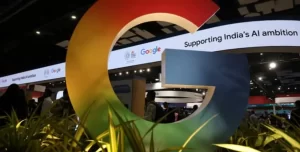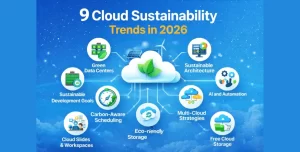
Will AI Take Over the World?
Table of Contents
Introduction
Welcome to WikiGlitz!
We’ve brought you this amazing blog on the question that’s been on many minds: Will AI take over the world?
With AI’s rapid advancements, people are curious and concerned about the long-term implications of artificial intelligence.
In this blog, we’ll explore the potential risks, challenges, and future of AI through expert insights and well-researched information.
Key Takeaways
- AI is unlikely to “take over the world” but may surpass humans in specific tasks, leading to significant societal shifts.
- The primary risks of AI lie in job automation, bias, and ethical concerns, rather than world domination.
- Proactive regulations and human control are necessary to ensure AI benefits humanity without threatening it.
Will AI Take Over the World?
This question is at the heart of many discussions surrounding artificial intelligence.
Will AI take over the world?
The short answer is: no, at least not in the way many fear. AI, as it exists today, lacks consciousness, emotions, and the ability to make decisions independent of its programming. The idea of AI “taking over” is more rooted in science fiction than reality.
However, AI is poised to reshape our world in significant ways.
AI can dominate specific sectors, surpassing human capabilities in areas like data processing, medical diagnosis, and even creative tasks like art and music generation.
Can AI Take Over Humanity?
While AI has the power to influence various aspects of our lives, can AI take over humanity?
No. AI is a tool, albeit a highly sophisticated one. It operates within the parameters set by humans, and it cannot act outside its programming.
The fears of AI “taking over humanity” stem from the concept of superintelligence, an AI that would surpass human intelligence across all domains and become uncontrollable.
Experts like Nick Bostrom, a leading philosopher in AI ethics, have warned that while superintelligence is not imminent, developing AI responsibly is crucial to avoid unintended consequences in the future.
Will AI Dominate the Future?
Yes, in certain sectors. AI’s role in industries like healthcare, finance, and logistics is growing rapidly.
For instance, AI-driven algorithms are already outperforming humans in medical diagnostics, identifying diseases like cancer with a higher degree of accuracy than doctors.
In the coming decades, we can expect AI to dominate various fields through automation and optimization.
However, domination doesn’t equate to total control. Human oversight and governance will play a vital role in ensuring AI remains a supportive tool, not a ruling force.
Is AI a Threat to Humans?
The question Is AI a threat to humans? hinges on how AI is developed and deployed.
AI itself is not inherently dangerous, but its misuse or unintended consequences can pose threats.
For example, autonomous weapons powered by AI could lead to warfare without human intervention, raising ethical concerns.
Moreover, AI can lead to job displacement. A 2020 report by McKinsey suggests that AI could automate up to 45 million jobs by 2030, which poses a significant societal challenge.
The key threat lies in how society adapts to these changes.
Can AI Replace Humans Completely?
AI is great at specific tasks but can AI replace humans completely?
The answer is no. AI excels at performing repetitive tasks and analyzing large datasets, but it lacks emotional intelligence, creativity, and moral reasoning—traits that are uniquely human.
While AI can take over certain jobs (like customer service or manufacturing roles), it is unlikely to replace humans in jobs that require empathy, creativity, and complex decision-making.
Will AI Surpass Human Intelligence?
AI can surpass human capabilities in defined areas such as calculations or playing chess. However, general intelligence—the ability to learn and apply knowledge across different fields—is still far from being achieved by AI.
Elon Musk has repeatedly warned about the dangers of developing superintelligent AI without proper safeguards.
Musk argues that superintelligence, once achieved, could lead to scenarios where AI makes decisions that humans cannot control.
However, such advancements are likely decades away, and many experts believe that regulations can prevent AI from becoming a threat.
Could AI Destroy the World?
The fear of AI causing catastrophic events often leads to the question: Could AI destroy the world?
While the likelihood of AI leading to human extinction is low, there are scenarios where poorly managed AI systems could cause significant harm.
For example, AI-powered autonomous weapons could escalate conflicts or make lethal decisions without human input.
AI systems controlling critical infrastructure like power grids or financial markets could also malfunction, leading to widespread damage.
To mitigate these risks, organizations like OpenAI are dedicated to developing safe AI that aligns with human values.
Is AI Dangerous to Society?
In some ways, yes. AI poses several risks to society, including:
- Job displacement: As mentioned, AI could replace millions of jobs, particularly in industries like transportation and manufacturing.
- Bias in decision-making: AI systems trained on biased data can perpetuate inequalities in hiring, criminal justice, and healthcare.
- Privacy concerns: AI’s ability to analyze large datasets raises concerns about data privacy and surveillance.
The societal impact of AI will largely depend on how we manage these risks.
Will AI Control the World in the Future?
Not likely. AI systems today are specialized and perform tasks based on human input.
While AI may manage complex systems like transportation networks or financial markets, human oversight will remain essential.
Without consciousness or self-awareness, AI will not seek power or control over humans.
Can Artificial Intelligence Rule the World?
Again, the answer is no. AI lacks the ability to desire power or control. It operates within predefined algorithms and doesn’t have the capacity for independent thought or self-governance.
The fear of AI ruling the world is largely based on misconceptions about how AI functions.
Is AI a Threat to Jobs and Humanity?
AI poses a serious threat to jobs, particularly in automation-heavy industries. However, the future of work could see humans and AI collaborating rather than competing.
AI can handle routine tasks while humans focus on creativity, critical thinking, and interpersonal skills.
In terms of being a threat to humanity, AI’s risk comes from misuse and unethical development rather than an inherent danger in the technology itself.
Risks of AI Taking Over the World
The risks of AI taking over the world are often exaggerated but not entirely unfounded. The major risks include:
- Autonomous weapons: AI-driven weapons systems could lead to escalated warfare without human intervention.
- Unemployment: Large-scale automation could lead to significant job loss, especially in repetitive task-driven industries.
- Loss of control: Without proper safeguards, highly advanced AI systems could behave in ways that humans don’t fully understand or control.
How Close Are We to AI Taking Over?
The answer depends on what you mean by “taking over.” If you mean AI systems automating significant parts of industries, we’re already there.
But if you mean AI becoming sentient or self-aware, that is still in the realm of speculation and far from current capabilities.
Future of AI in Controlling Society
The future of AI in controlling society lies in its integration into systems that govern our lives—like healthcare, transportation, and finance.
However, strong regulatory frameworks are needed to ensure that AI serves society rather than controls it.
How Can AI Affect the World?
AI is already transforming industries like healthcare, transportation, and finance.
It can improve productivity, make more accurate predictions, and even save lives through early disease detection. However, its impact on jobs, privacy, and ethics must be carefully managed to ensure that it benefits society as a whole.
Can AI Be Stopped?
AI development can’t be “stopped,” but it can be regulated.
Governments and organizations must work together to create guidelines for ethical AI development and ensure that AI systems remain under human control.
Follow WikiGlitz for more such insights into the evolving world of artificial intelligence and technology.
FAQs
Will AI Take Over the World?
AI will not take over the world, but it will likely play a significant role in reshaping industries and society. Human oversight will remain critical.
Can AI Take Over Humanity?
No, AI cannot take over humanity. It operates based on human programming and lacks the consciousness or motivation to do so.
Is AI a Threat to Jobs?
Yes, AI could displace millions of jobs, especially in automation-prone industries, but it may also create new roles in AI development and maintenance.
Will AI Surpass Human Intelligence?
AI may surpass humans in specific tasks, but general intelligence—on par with human cognitive abilities—remains a distant goal.
Can AI Destroy the World?
While unlikely, poorly controlled AI, particularly in autonomous weapons systems, could pose risks if used irresponsibly.
How Close Are We to AI Taking Over?
AI is rapidly advancing in specific areas, but the notion of AI “taking over” remains far-fetched and rooted in science fiction.
Want to keep up with our blog?
Our most valuable tips right inside your inbox, once per month.
Error: Contact form not found.
Previous
Can AI be Dangerous?WikiGlitz Team
Welcome to WikiGlitz, your ultimate destination for tech insights and innovation. Our expert team is dedicated to delivering free resources and professional advice on various technology topics, including Artificial Intelligence, Cyber Security, Cloud Computing, and more. We strive to empower our readers with up-to-date information and practical guidance, ensuring you stay ahead in the rapidly evolving tech landscape. At WikiGlitz, we are passionate about making complex technology accessible to everyone. Our team of seasoned experts curates content that is both informative and engaging, helping you understand and leverage the latest tech trends. Whether you're a tech enthusiast or a professional, WikiGlitz is your go-to source for reliable, expert-driven content. Join us on this journey to explore and embrace the future of technology.





